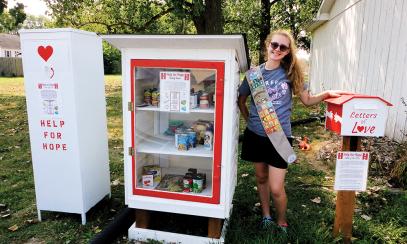
The Instincts of Our Faith
Studying the Church, I have always been captivated by the ecclesiological notions of the Sense of Faith (Sensus Fidei, in Latin) and the Sense of the Faithful (Sensus Fidelium).
The first — sensus fidei — refers to the believers’ assurance of the faith’s fundamental truths. “Because of its anointing by the Holy Spirit, the whole body of the faithful possesses a sure sense of the faith,” as the Second Vatican Council described it in Lumen Gentium no. 12.
The second notion — sensus fidelium — refers to the faithful’s role in actively living out and expressing that faith. It is concerned about how the faithful as a community of believers — not as individuals — understand and live the faith.
We do not have definitive definitions or explanations of how these two notions operate, which is appropriate since our entire theology encourages us to be genuinely committed to being a Church always led by the everlasting presence and transforming grace that the Holy Spirit delivers to the faithful and not to rely upon our imperfect, human-made, temporary intellectual constructs.
Why am I sharing this with you? Since March 2020, I have been discerning signs of what the sense of faith and the sense of the faithful mean in the COVID era we live, and how are we allowing the Holy Spirit guide us into a new epoch — hopefully, COVID-free — of our faith journeys amid much uncertainty.
With our parishes still operating at limited capacity, the pastoral leadership formation program moved to an online version, without the possibility of holding on-site gatherings of worship, faith formation, and fellowship — the uncertainty and risks we face as a community have made me frightful and concerned that we will lose meaningful opportunities to continue living out our faith and the sense of community will disappear.
But that fear is I, humanly worrying and not paying attention to what God, Father-Son-Spirit is (always present in a community of love) and the faithful (fidelium) instinctively already know.
During these difficult times in our world, faithful and devout Catholics have preserved and committed to deepening their faith despite the difficulties we face. We have seen an increasing number of laity signing up for our online biblical and pastoral leadership courses. We have hosted online webinars to deepen some of our faith’s important expressions: devotion to Mary, in-depth scriptural analyses of biblical theology topics, exploration of the contributions of lay apostolic movements, to name a few.
I am pleasantly surprised with the response of the large number of people connecting in online prayers rooms, following live streams of Sunday eucharistic celebrations, attending virtual Bible study groups, faith and pastoral leadership sessions, motivated solely by the desire to nuance and nourish that instinctual faith conviction (sensus fidei) that God is indeed always with us. We seek ways to live out that conviction, even with our created virtual communities — sensus fidelium “virtualis,” to coin a new concept.
Somewhere else, I have shared that the missionary disciple call of the Church in these challenging times may not even involve moving away from your living room where you can plug in your laptop or smartphone to get connected for meaningful faith growth and community building. I am witnessing people connecting to online spaces and growing in their faith, knowing instinctively that God is ever-present and always speaks to us, especially in troubling times. An online participant to our Bible study group of the New Testament shared with the group: “We all need to sharpen our listening skills to discern God’s revelatory word for today’s times.”
This sense of the faithful has proven to me the importance of pastoral church leaders to be in constant discernment and close to the people, no matter how challenging this can be. The sensus fidelium preserves the one true faith over time and amid obstacles. The Church ought to be there to accompany, support, and help invigorate people’s relationship with God, who invited us to participate in the community of Father-Son-Spirit.
The Office of the Hispanic and Ethnic Ministries has been prayerfully listening to the new signs of our times. Valuing people’s faith concerns (sensus fidelium) and responding to the need for faith formation opportunities and community building spaces with various initiatives.
Since January, we resumed our New Testament study group. We offered virtual classes to support parents in the challenging vocation of being the first faith educators of their kids. We offered a course in effective communication skills in pastoral contexts. We are collaborating with Catholic Relief Services to form a Spanish chapter that will join the national efforts of the bishops in the United States to end global poverty. We partnered with the Leadership Roundtable to train Latina/o leaders in our diocese in professional pastoral leadership skills. We are collaborating with the diocesan Office of Family Ministry to engaged Latino/a lay in conversations about families’ lived experiences. As 2020 taught us, we will continue with these and more initiatives, “one day at a time.”
I feel reaffirmed in my faith, witnessing in these online spaces, the sensus fidei — the assurance of faith in God — profoundly present every time we share the pains of current experiences from the isolation of our homes, and the testimonies of the living witness and hope of the people—Sensus Fidelium.
TO LEARN MORE about current and future faith and leadership formation opportunities, visit the Office of Hispanic Ministry website



